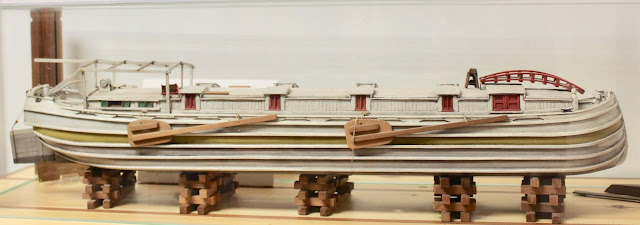Canal was Unequal to Demand
Wednesday, Oct. 21, 1863
Chenango Canal
______
A line of canal runs from Utica to Binghamton, one great use of which is to bring coal for the mines of Pennsylvania for consumption in Central New York, while also merchandise is carried to the several points on the line of the canal, is in atrocious condition - damaging all who do business upon it, and inflicting harm on every manufacturing establishment and every family in all this region, which uses coal as fuel.
At the best the canal is hardly equal to the demand upon it. For that reason the Commissioner in charge should pay especial attention to keep it as efficient as possible. The Chenango canal is in the charge of William W. Wright, the present incumbent, and the Copperhead candidate for commissioner.
The Superintendent can do little or nothing without directions from him. The contractors are under the control of the Commissioner.
In view of these facts it is easy to fix the responsibility for the shameful condition of the canal. In June and July, navigation was suspended for nearly or quite twenty days; and again during September, a fortnight of most valuable time was wasted to the boatmen by the interruption of navigation. During a full month or more the canal has not been available, while during the rest of the season the boatmen have labored under unreasonable obstacles.
Boats have more than once been delayed three days at a single lock. Nor is this the exception; hindrance and delay have become the rule. Boatmen shun the Chenango canal as they would a pestilence; for they can earn nothing by reason of the obstructions. The bed of the canal is full of water grass, and the earth is constantly washing in. The locks, small at best, are dilapidated and uncertain. And the repeated breaks show how much the banks need strengthening.
The consequence is that the boatmen who have run on the canal during the season have lost money. Freights have been unusually high, to cover the risks and delays. On coal $1.90 per ton is paid instead of $1, and $1.25. Fuel commands the increased price of an advance at the coal mines, but this is magnified by reason of the cost and delay in freight, so that the neglect to keep the Chenango canal in condition affects the fire in every door man’s house, and he expenses of every factory. And the whole of Central New York, from Oneida to Fort Plain, and northward to the Black River, depends upon this channel for the coal.
Navigation is drawing to its close, and the harm is done for this year. But a Commissioner who leaves a canal in such condition as Mr. Wright has left the Chenango, should not be continued in his position. He should certainly receive no votes along the Chenango valley. the neglect of the past two years, has probably suffered the locks to go so far into decay that re-building will be cheaper than any attempt to repair them.
In that case it becomes the people along the valley and all interested in its navigation to act in concert for the substitution of enlarged locks equal to a better class of boats than have hitherto been available on this canal. At all events neither consumers of coal nor the business men of the Chenango valley, nor the boat-men here engaged, will endure that the canal should be subjected as it has been during the past season. We need first of all, a more efficient Commissioner, whom we shall have inn General Bruck; and if any additional legislation is necessary, that too must be had.
We hear it suggested that a canal convention to consider the whole matter, will be held at an early day.





Comments
Post a Comment